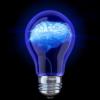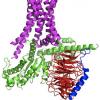L-theanine is also supposed to increase dopamine. I find it gives more of a kick than caffeine but it also upsets my gut. I have mild gastritis and drink too much coffee already so think the l-theanine pushes me over the edge.
It seems to have a positive effect but does not cure my morning fatigue.
Macuna pruriens is supposed to actually contain l-dopa. L-tyrosine is also supposed to increase it. There are probably more supplements that I missed as well.
The histamine side of things seems more confusing. I get sneezing fits when I drink red wine (contains more histamine than white wine). So I suspect that I would want to limit the my histamine since I am sensitive to it. Of course there are a few threads on here mentioning that there are supplements that allegedly increase only one type of histamine. I don't fully understand it yet myself.
I'm skeptical about some of what's quoted above.
First, coffee is an enormous source of gut problems for many people, whereas I've never heard of or seen anything, prior to your comment, to suggest any such problem due to l-theanine. In fact, I'd go so far as to say that your coffee habit could be causing the bulk of your problems, everything from morning grogginess to gastritis. Yes, even as I type this it seems painfully obvious to me that this is a primary driver of your issues.
Coffee causes gastritis, this is well known and you can find plenty of documentation of it. I used to be a coffee drinker until 3 years ago when my doctor diagnosed me with esophagitis and prescribed a proton pump inhibitor such as Prilosec. I knew I didn't want to take that because of what it would do to my digestion, so I decided to quit. I went cold turkey off of coffee and my esophagus and gastrointestinal issues cleared up immediately, like within 2 days. I haven't had a problem with that since.
In the intervening time, I've taken to consuming caffeine mixed with a few amino acids, which I take first thing in the morning. I keep it under my bed because I'm a slow waker too. I can control the dose of caffeine I get and I don't have to deal with the coffee probs or wait until I get out of bed to get my caffeine.
If you drink coffee throughout the day then it is guaranteed to mess up your sleep patterns. So if you aren't willing to give it up entirely then at least eliminating all but the breakfast cup would be advisable.
Ideas about needing to increase dopamine are popular on this and other forums, and probably aren't true for most people, but if you do want to do that then l-theanine, tyrosine, and d,l-phenylalanine are good indirect methods, while high-dopa content Mucuna is a more direct method. Many people find tyrosine to be overly stimulating, and if that were the case for you then DLPA might be a better choice, along with l-theanine. I take theanine and DLPA every morning with my caffeine and amino acids.
Your comment about red wine and histamine makes me skeptical as well. There are other chemicals such as certain tannins in red wine that some people are allergic to. But this is sort of off topic, other than the connection between histamine receptors and wakefulness.
I think adaptogens are a good option to try, and try it aggressively. I agree with suggestions for rhodiola and jiaogulan. These substances don't work in ways that you necessarily would notice, except over a long period of time. I also find it useful to take several of them in order to get variety of effects. Good choices for you to add to rhodiola and jiaogulan in the morning would include Eleuthero (Siberian ginseng) and schisandra. In the evening (with dinner, for example), you could take ashwagandha and bacopa. Over time I think you'd experience some balancing of your cortisol levels, along with other benefits such as enhanced immunity and stamina.
I read one study which found that taking 3 grams of glycine at bedtime led to improved sleep quality and a feeling of being more rested in the morning among study participants. So I take 3 grams of glycine every night. I've never noticed it being especially helpful and yet I've done this for 3 years. Glycine supposedly has other benefits, which I won't get into here.
Edited by deeptrance, 31 January 2015 - 08:06 PM.



























































